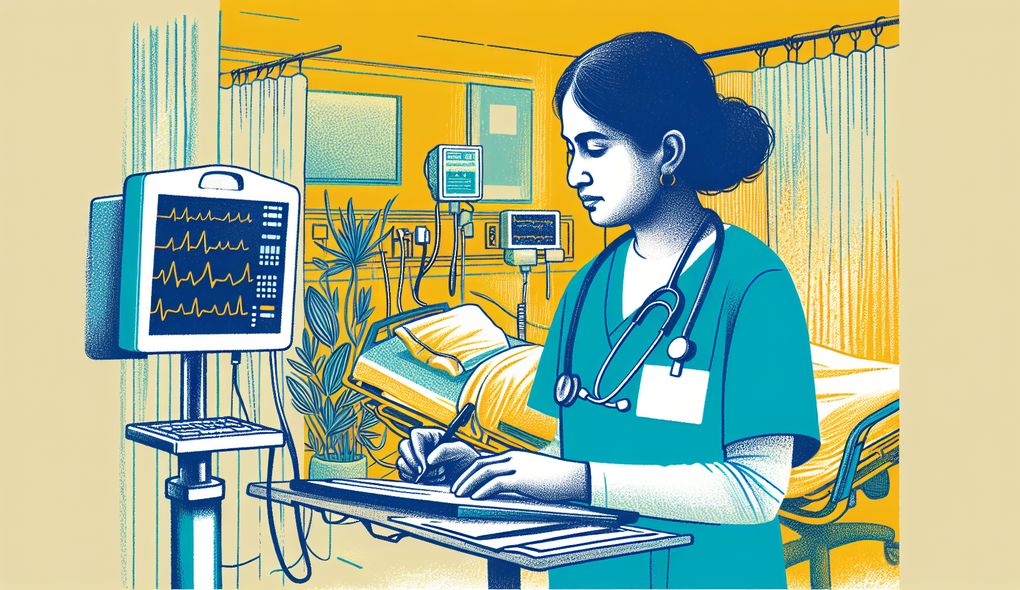What role does empathy play in the recovery room nurse's interactions with patients?
INTERMEDIATE LEVEL

Sample answer to the question:
Empathy plays a crucial role in a recovery room nurse's interactions with patients. It is the ability to understand and share in the feelings and emotions of the patients, allowing the nurse to provide compassionate care and support. For example, empathizing with a patient's pain and discomfort can help the nurse determine the appropriate pain management methods. Similarly, empathy helps the nurse address the emotional needs of patients, easing their anxiety and promoting a calm and healing environment. Empathy also enables effective communication between the nurse and the patient, allowing the nurse to provide clear instructions and answer any questions or concerns the patient may have.
Here is a more solid answer:
Empathy plays a crucial role in the recovery room nurse's interactions with patients as it helps them provide compassionate care and support. By empathizing with patients, nurses can understand and address their specific needs, ensuring their comfort and well-being. For example, when a patient is in pain, an empathetic nurse will actively listen, assess their pain levels, and administer appropriate pain relief measures. This not only alleviates physical discomfort but also shows the patient that their pain is acknowledged and understood. Empathy also aids in addressing the emotional needs of patients, especially those experiencing anxiety or fear. A nurse who empathizes can provide reassurance and emotional support, creating a calm and healing environment. Additionally, empathy enhances communication between the nurse and patient, promoting effective information exchange and the establishment of trust. By actively listening and understanding the patient's perspective, the nurse can provide clear instructions, answer questions, and alleviate any concerns. Furthermore, empathy enables collaboration with other healthcare professionals, such as surgeons and anesthesiologists, by fostering teamwork and effective communication.
Why is this a more solid answer?
The solid answer provides specific examples and details to illustrate how empathy is applied in a recovery room nurse's interactions with patients. It also addresses the collaboration aspect mentioned in the job description by mentioning its role in fostering teamwork and effective communication with other healthcare professionals. However, it could still be improved by incorporating more examples to showcase the application of empathy in different scenarios.
An example of a exceptional answer:
Empathy is a cornerstone of the recovery room nurse's role, shaping their interactions with patients on multiple levels. Firstly, empathy allows nurses to provide personalized and patient-centered care by understanding and attending to each individual's unique needs. By actively listening and observing, empathetic nurses can tailor their approach to pain management, ensuring optimal relief for patients. They also recognize and address emotional distress, calming anxieties and fears. For example, understanding that a patient may be nervous about waking up from anesthesia, a compassionate nurse will remain by their side, offering reassurance and support. Empathy also enables nurses to establish rapport and build trust, which are crucial for effective communication and patient cooperation. By demonstrating genuine care and understanding, nurses can create an environment where patients feel safe sharing concerns and asking questions. Furthermore, empathy promotes collaboration among healthcare professionals, facilitating interdisciplinary teamwork and improving patient outcomes. Empathetic nurses actively engage with surgeons and anesthesiologists, sharing vital information and working together to ensure seamless care transitions. Overall, empathy is not just a soft skill; it is an indispensable asset that empowers recovery room nurses to deliver exceptional, holistic care to patients.
Why is this an exceptional answer?
The exceptional answer goes above and beyond in highlighting the role of empathy in a recovery room nurse's interactions with patients. It emphasizes the personalized and patient-centered aspect of care, provides concrete examples to demonstrate empathy in action, and highlights the importance of empathy in building rapport and trust. It also expands on the collaboration aspect mentioned in the job description, showcasing how empathy promotes interdisciplinary teamwork and improves patient outcomes. The answer is comprehensive and addresses all the evaluation areas mentioned in the job description effectively.
How to prepare for this question:
- Reflect on past experiences where you demonstrated empathy in patient care. Prepare specific examples to showcase your ability to understand and attend to patients' needs.
- Practice active listening skills to enhance your ability to understand the emotional state and concerns of the patients.
- Read up on the latest pain management techniques and protocols to showcase your knowledge and ability to empathetically address patients' pain.
- Familiarize yourself with interdisciplinary collaboration by researching how recovery room nurses work with surgeons, anesthesiologists, and other healthcare professionals.
- Consider the impact of empathy on patient outcomes and explore research articles or case studies that highlight its significance in healthcare.
What are interviewers evaluating with this question?
- Compassion and attention to patient needs
- Excellent communication and interpersonal skills

